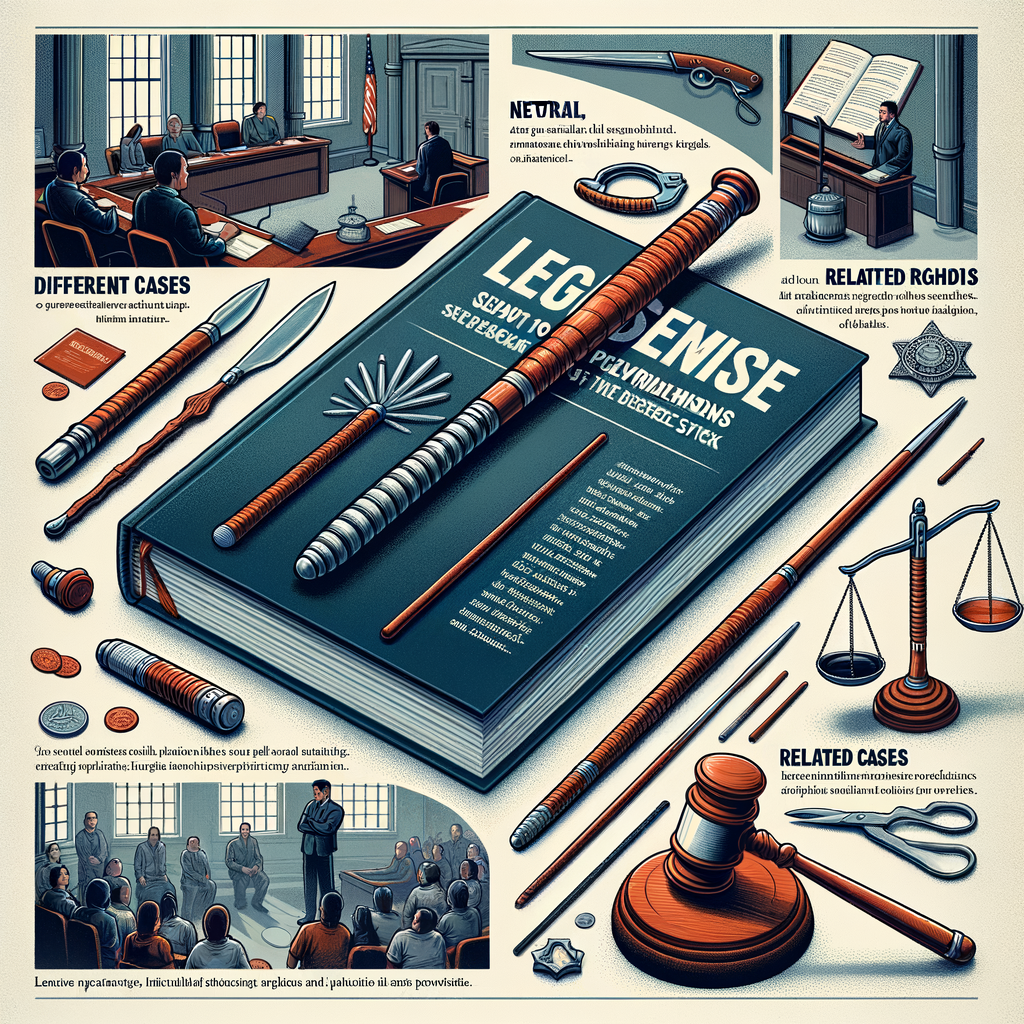-
Table of Contents
Legal Considerations for Self-Defense Sticks
Self-defense is a fundamental right recognized by many legal systems worldwide. However, the use of self-defense tools, such as self-defense sticks, is subject to various legal considerations. This article explores the legal aspects of using self-defense sticks, with a focus on products available at Self Defense Mall.
Understanding Self-Defense Sticks
Self-defense sticks, also known as batons, are compact, easy-to-carry tools designed to help individuals protect themselves in dangerous situations. They come in various forms, including expandable batons, stun batons, and tactical batons. These tools can deliver powerful strikes to deter attackers and provide a crucial advantage in self-defense scenarios.
Legal Status of Self-Defense Sticks
The legality of self-defense sticks varies significantly across different jurisdictions. In some places, they are considered legal and can be carried openly or concealed. In others, they are classified as weapons and are subject to strict regulations or outright bans.
United States
In the United States, the legality of self-defense sticks is determined by state laws. Some states, like Arizona and Texas, allow the open carry of batons. However, states like California and New York have strict laws against carrying batons without a permit.
Canada
In Canada, batons are considered prohibited weapons under the Criminal Code. It is illegal to possess, buy, or sell them without a specific license or authorization.
United Kingdom
In the UK, batons fall under the category of offensive weapons. It is illegal to carry them in public without a reasonable excuse, such as for work purposes.
Legal Use of Self-Defense Sticks
Even in jurisdictions where self-defense sticks are legal, their use is governed by the principle of reasonable force. This means that you can only use the amount of force necessary to protect yourself or others from harm. Excessive or disproportionate use of force could lead to criminal charges or civil lawsuits.
Case Study: State v. Norman
In the case of State v. Norman, a man was charged with assault after using a baton to defend himself during a bar fight. The court ruled that his use of force was reasonable given the circumstances, highlighting the importance of proportionality in self-defense situations.
Choosing a Legal Self-Defense Stick
When choosing a self-defense stick, it’s crucial to consider the legal implications. Here are some options available at Self Defense Mall that comply with various legal requirements:
- Police Force 12 Inch Expandable Steel Baton with Key Ring: This compact baton is designed for easy carry and quick deployment. Its small size may make it more likely to be considered a legal self-defense tool in jurisdictions with stricter laws.
- Streetwise Barbarian 9,000,000 Stun Baton Flashlight: This multi-purpose tool serves as a flashlight, a stun gun, and a strike weapon. Its versatility can provide a legal and practical advantage in self-defense situations.
Conclusion
While self-defense sticks can be effective tools for personal protection, it’s essential to understand the legal considerations associated with their use. Laws vary widely, so it’s crucial to research local regulations before purchasing or carrying a self-defense stick. Even where these tools are legal, they must be used responsibly and proportionally to the threat faced. By staying informed and making careful choices, you can exercise your right to self-defense within the bounds of the law.


